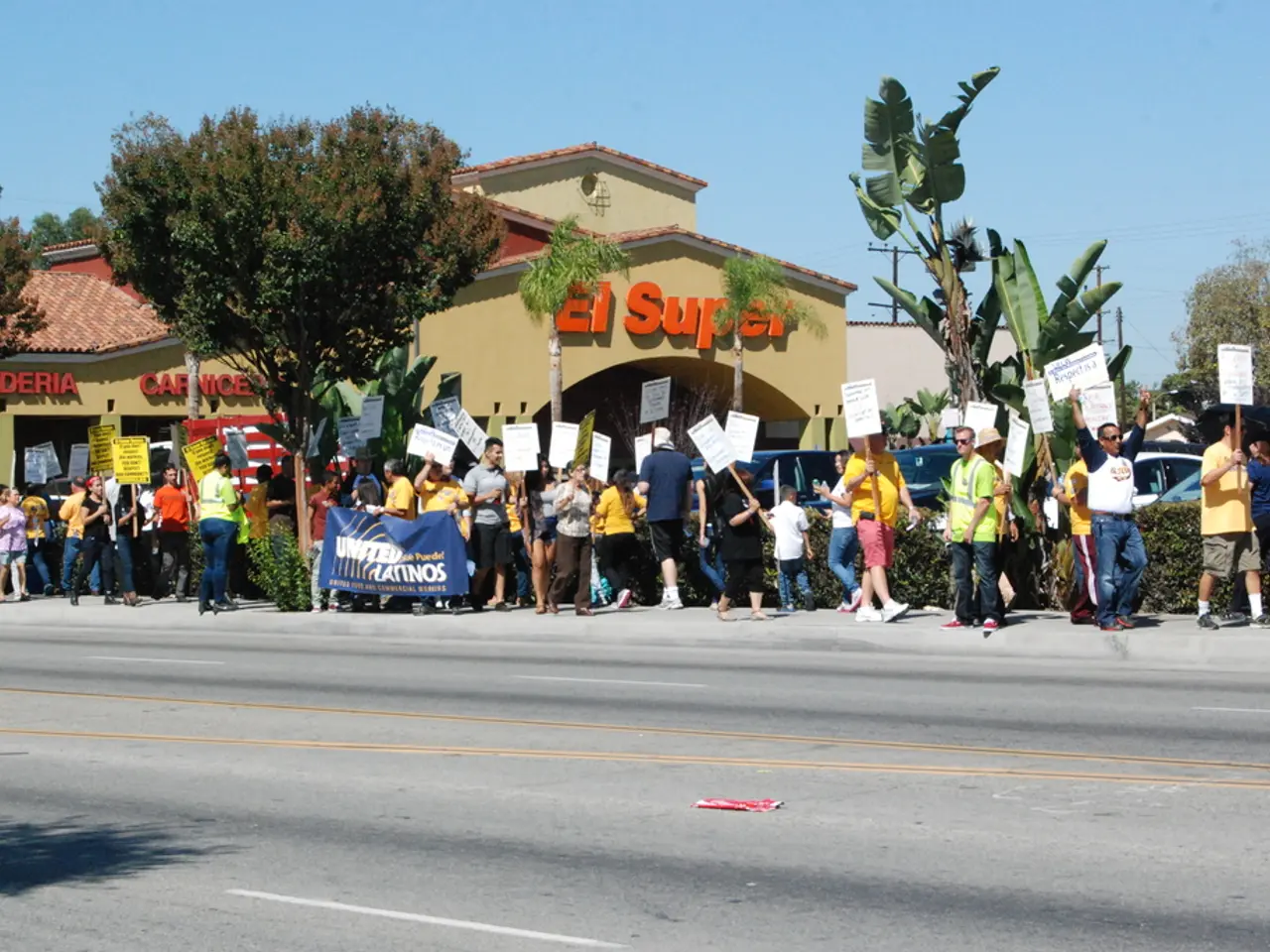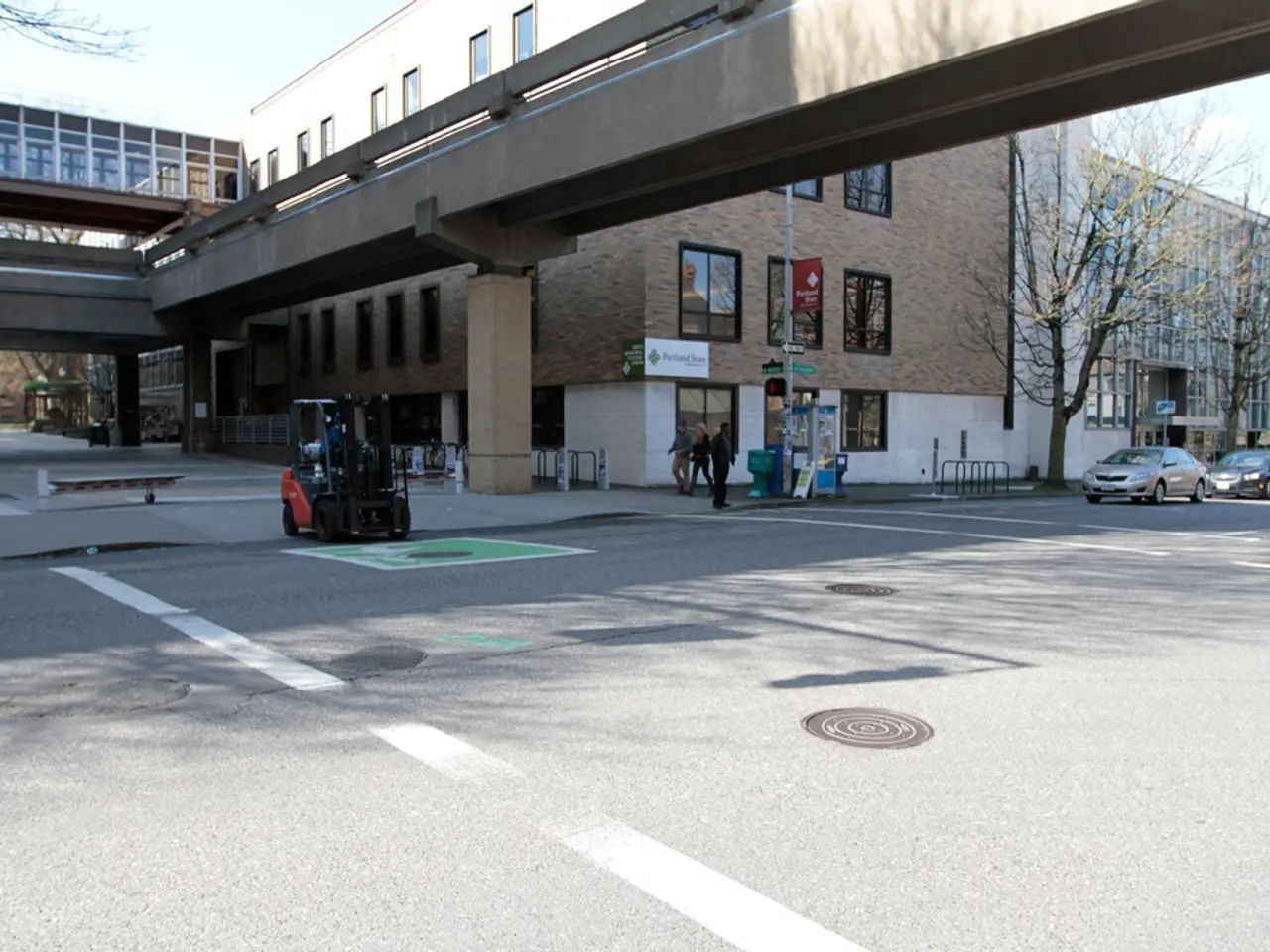Governmental Control Shift: Keir Starmer Faces Rebellion as Labour Cuts Back £5bn Benefits Initiative Again, Saving Vote - Uncertainty Surrounding Potential Economic Impact
In a notable turn of events, Keir Starmer's welfare reform proposals have undergone significant changes following a rebellion within the Labour Party. The initial plan, which aimed to raise the threshold for disability benefits eligibility, was met with strong opposition from over 120 Labour MPs, prompting the government to make concessions [1].
The revised measures, announced by Starmer, guarantee that no current benefit recipients will be affected by the changes. The government also pledged to consult with disability groups and strengthen support for sick and disabled people in finding employment [1].
However, not all Labour rebels were appeased, indicating a split within the party. The welfare reform vote in Parliament was a crucial test of Starmer's leadership and government agenda, marking the third recent policy U-turn. Previous retreats included scrapping cuts to winter home heating subsidies for retirees and launching a national inquiry into organized child sexual abuse after political pressure [1].
These developments have been viewed as a significant setback for Starmer, particularly given his large parliamentary majority. The welfare reform rebellion raises concerns about his ability to push through difficult decisions in the future, with more internal challenges potentially on the horizon [1].
The latest details on the welfare reform involve the Department for Work and Pensions (DWP) estimating that the revised proposals would still push 150,000 extra people into poverty by 2030, sparking anger among many [1].
Work and Pensions Secretary Liz Kendall stated that reviewing the assessment of the disability benefits system is a major undertaking that will take time to get right, especially if co-produced properly [1]. The remaining changes, due to be introduced in November, will now not come in before a review is completed in the autumn of 2026.
There appears to be 'clear confusion' on the review and whether it will be co-produced with disabled people and their organizations, as stated by the Work and Pensions Committee chair [1].
The implications of these events include a weakened perception of Starmer’s leadership strength due to the inability to fully implement his welfare reform agenda. Potentially, more intra-party disputes and challenges may arise in passing future austerity or welfare-related measures. Increased scrutiny and pressure from disability groups and vulnerable populations are likely to influence government policy. The need for more careful negotiation and concessions to maintain Labour unity and public support goes forward [1].
In essence, Starmer’s welfare reform concessions and parliamentary vote reflect significant political pressure and negotiation within the UK Labour Party, with lasting impacts on the government's welfare policy trajectory and leadership credibility.
[1] Source: Various news outlets, including The Guardian, BBC News, and The Independent.
- The financial implications of Keir Starmer's revised welfare reform proposals will be closely watched, particularly by the business community and the science sector, considering their potential impact on the economy and public welfare.
- The health sector is expected to weigh in on the revised welfare reform measures, given the serious implications they may have for sick and disabled individuals' access to healthcare services and overall well-being.
- The latest news-outlets report that the revised welfare reform vote has sparked discussions in the realm of politics and policy-and-legislation, with the Labor Party grappling with internal challenges as well as the prospect of future debate on austerity and welfare issues.
- Car-accidents, fires, and crime-and-justice may take a backseat in the public's general-news consciousness for a while, as the welfare reform rebellion and its consequences continue to dominate headlines.
- The revised welfare reform measures, while accommodating some concerns, have been met with further fiery debate among various groups, including disability organizations and rights activists, who are urging for additional concessions and closer involvement in the review process.
- As more details emerge regarding the welfare reform rebellion, the media industry will be scrambling for insights into the potential reasons behind this significant shift, exploring political, social, and economic factors at play.
- With a close eye on welfare reform progress, the public will undoubtedly witness heated debates and lobbying efforts from opposing camps, as well as adjustments to policy-and-legislation in the best interests of vulnerable populations—whose lives and livelihoods are significantly at stake.








